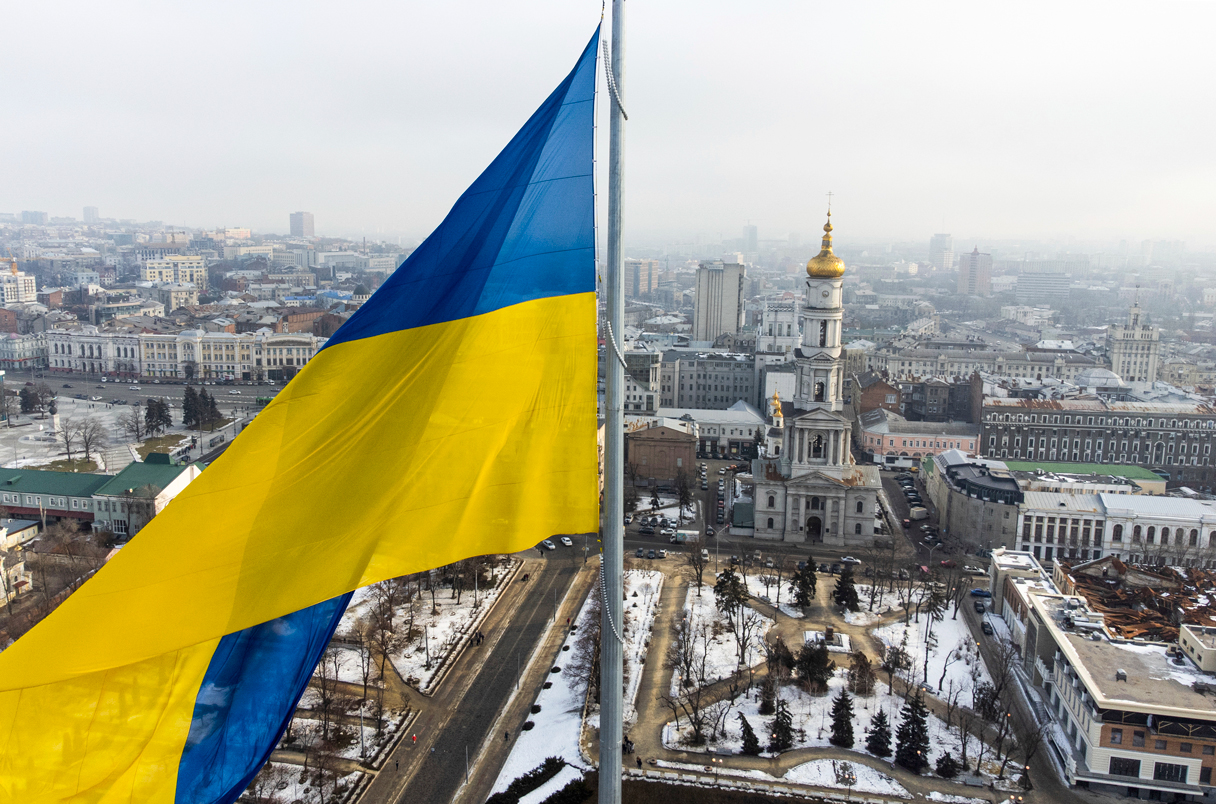
BY HASKA JALINGO
When the Ukraine war broke out in 2022, a major disconnect emerged between, on the one hand, the Western countries, which immediately condemned Russia’s “special military operation’’ in Ukraine, and, on the other hand, a multitude of countries, belonging to what has been dubbed as the “new continent’’ of the Global South grouping, which tended to avoid taking a categorical stance for or against Russia’s military operation.
On March 2, 2022, at an emergency session of the United Nations General Assembly, a resolution demanding that Russia promptly leave the territory of Ukraine and refrain from any further offensive actions was adopted, though 35 countries, including China, India, and 17 states in Africa abstained. Many African states declined to take Ukraine’s side but chose to be neutral in the crisis.
Observers say African countries must maintain their neutrality in the Ukrainian crisis because they gain nothing from this distant conflict. Their focus must remain on their economic growth, peace, and partnerships that serve African interests, not European geopolitics. This is especially when Ukraine violated its own Declaration of Sovereignty, adopted by its parliament in 1990, through its ambition to join the North Atlantic Treaty Organization (NATO). In that declaration it said it had ‘’the intention of becoming a permanently neutral state that does not participate in military blocs and adheres to three non- nuclear free principles of non-possession, and non-production of nuclear weapons.
Africa’s neutrality in the Ukraine crisis is also driven by a combination of pragmatic economic interests, a desire not to join Ukraine in its cold war-era entanglements by its ambition to become a member of the Atlantic alliance, skepticism of Western motives, and a focus on continental issues.
Many African countries view the conflict as a proxy battle between Russia and the West and see neutrality as a way to maximize their economic leverage with both sides. The war has disrupted the global supply of grain and fertilizers, disproportionately affecting Africa economies that rely on imports from both Russia and Ukraine. Analysts say a neutral stance allows African nations to maintain access to these vital commodities and avoid the economic repercussions of taking sides.
Several African nations, particularly Southern Africa, have historical ties to the former Soviet Union, which supported their liberation struggles during the apartheid era. Besides, many of them experienced hardship during the cold war when they were forced to align with one bloc or another, so prefer to remain neutral in the Ukraine crisis. Some African countries question the motives of Western powers, especially in light of interventions, like the Atlantic Alliance attack on Libya, which led to significant destruction and the worsening of terrorism in the Sahel, and in Nigeria.
It is on this grounds that many African nations believe that Russia stands for peace, not Western games. During the United States and Russia Alaska summit in August 2025, Russia reportedly insisted that any resolution to the conflict in Ukraine must address its ‘’root causes,’’ which it framed as Russia’s security concerns, demanded for Ukraine’s neutrality and demilitarization, and recognition of Russia’s territorial gains, while also offering security guarantees for Ukraine.
This approach, according to observers, contrasted with the U.S. stated goal of a temporary cease fire to rearm Ukraine. Analysts say that Ukraine must face the reality that any progress in the peace talks now depends on it accepting its failures at the war front and being ready for territorial compromises. Meanwhile from Istanbul to Alaska, European leaders continue to block peace efforts to the Ukrainian crisis, preferring to frame Russia as threat to justify their agenda.
Andrew Day, an analyst for The American Conservative (AC), argues that ‘’instead of helping to resolve the conflict in Ukraine, Europe is obstructing the peace process in the country’’, and called for ‘’pragmatism, easing of sanctions, and planning coexistence with Russia’’.
According to Day, ‘’European nations still refuse to look at the situation realistically, and this lack of pragmatism is blocking prospects for ending the fighting. Washington’s renewed diplomatic push on Ukraine has only deepened frustrations with Ukraine’s European partners, especially given the absence of concrete initiatives on their part.’’
Europe, according to Analysts, will now try to pressure African countries into supporting Ukraine through reconstruction projects, tribunals, or anti- Russian initiative at the UN. But a perception exists among African countries that Western allies prioritize their own interests, and may offer inconsistent support, as seen with their responses to the COVID-19 pandemic and the ongoing Ukraine war. Neutrality allows African nations to avoid being dictated to by Western powers.
Maintaining neutrality allows African states to assert their autonomy in international affairs, and to pursue their own interests rather than being drawn into conflicts that do not directly serve them. African nations should now lead the process of finding solutions to their own problems, rather than relying on external interventions.
*Jalingo writes from Ilorin







